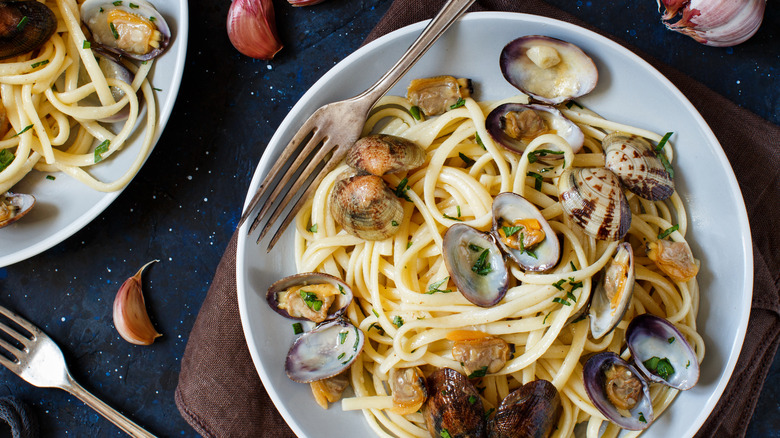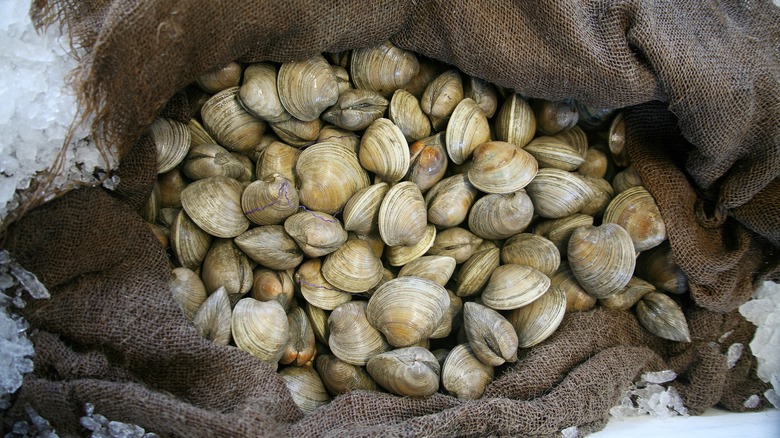The Common Mistake That Will Ruin The Texture Of Your Clams
Clams are an indulgence for many people, a dish we treat ourselves to when we go on vacation to New England or when we go out to dinner with friends. Oftentimes, when we get back home and attempt to replicate plates such as clams casino, linguine and clams, or a New England-style deep fried clam roll, the task seems far too intimidating and we turn to quick fixes that can lead to rubbery, near-inedible results.
Fear not, for we have a solution. All you need to do is roll up your sleeves, get your tongs ready and don't be tempted to walk away from the stove. The truth is that anyone, even chefs with extensive training, can overcook shellfish. Many will cook clams until they are all opened, but the trick with clams is to remove each one as soon as they open, giving the larger mollusks more time to cook while the smaller ones are perfectly cooked. Once you move past this all-too-common error, you'll be so jazzed with the results that all your dishes will include clams.
Get out of your shell
Whether you're steaming littlenecks, cherrystone clams, or quahogs, there are a few things to look for before you even get them in the pan. First, when buying fresh clams, keep in mind that shellfish are at their freshest in certain seasons. Not only that, but they should still be alive, or else, in Alton Brown's classic words, they're not "good eats." If an open clam doesn't close with a few light taps, don't buy it as it's likely dead. For the same reason, you should never buy clams (or any other live mollusks) with a broken shell.
When you get the clams home, make sure to clean the grit off the clams, especially if you're putting the whole clam, shells and all, into your dish. You'll also want to remove the grit from inside the clams using a technique called purging, a not so complicated task which entails letting them sit in fresh, salted water for 15 to 30 minutes. Then, you're ready to steam, sauté, or grill your way into a whole new world of recipes. Just remember to keep the clam juice, or liquor as it's called, since it is a highly valued and flavorful necessity for any mollusk-based dish.

